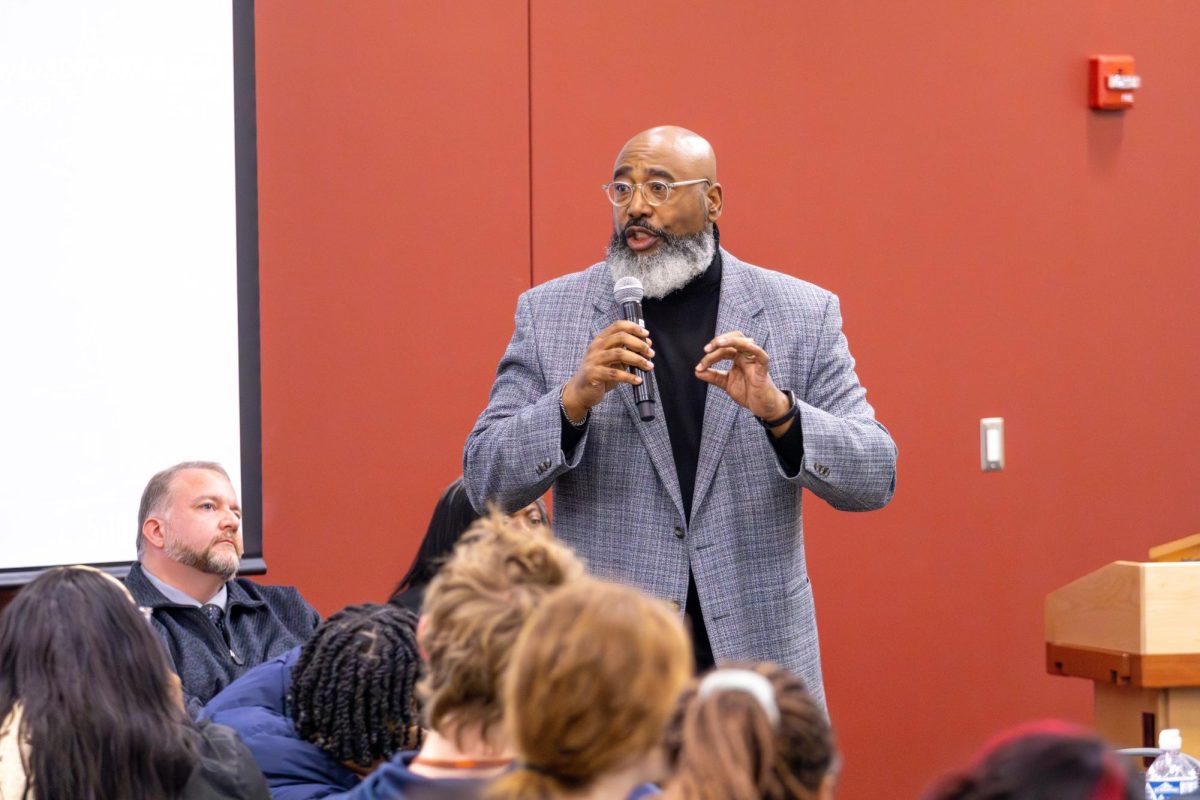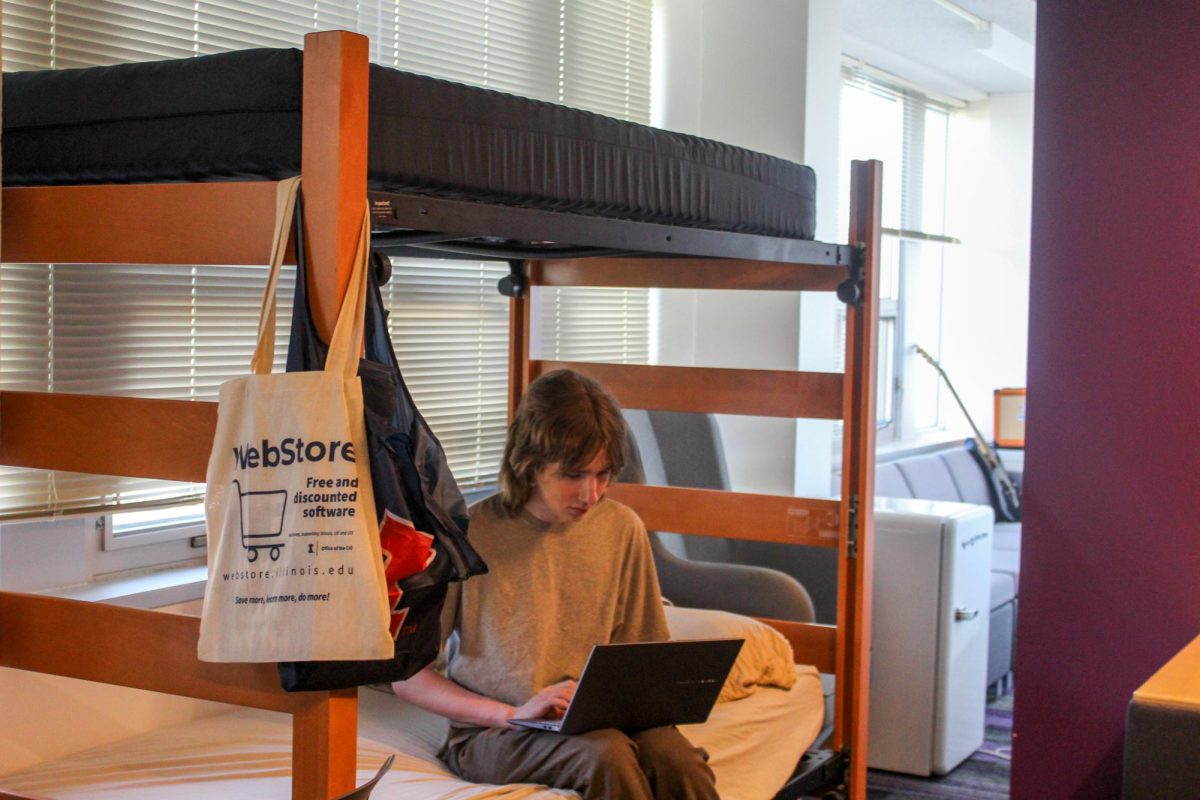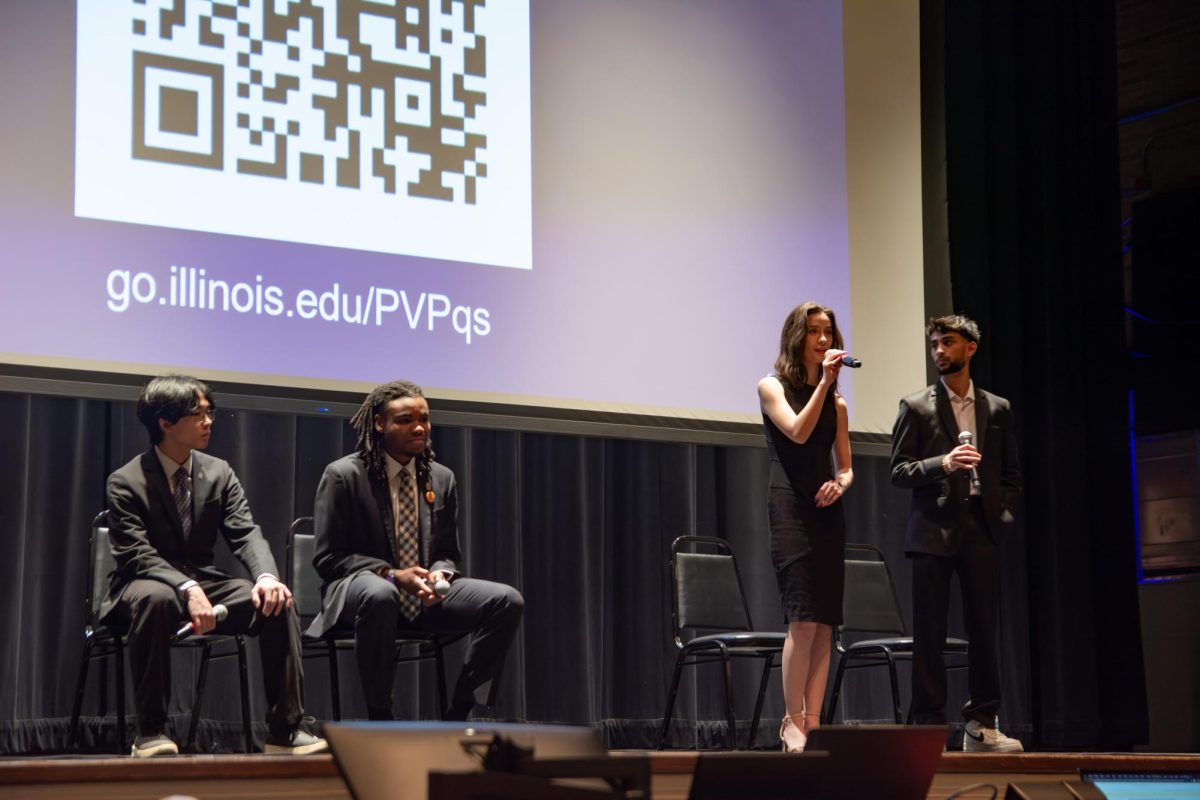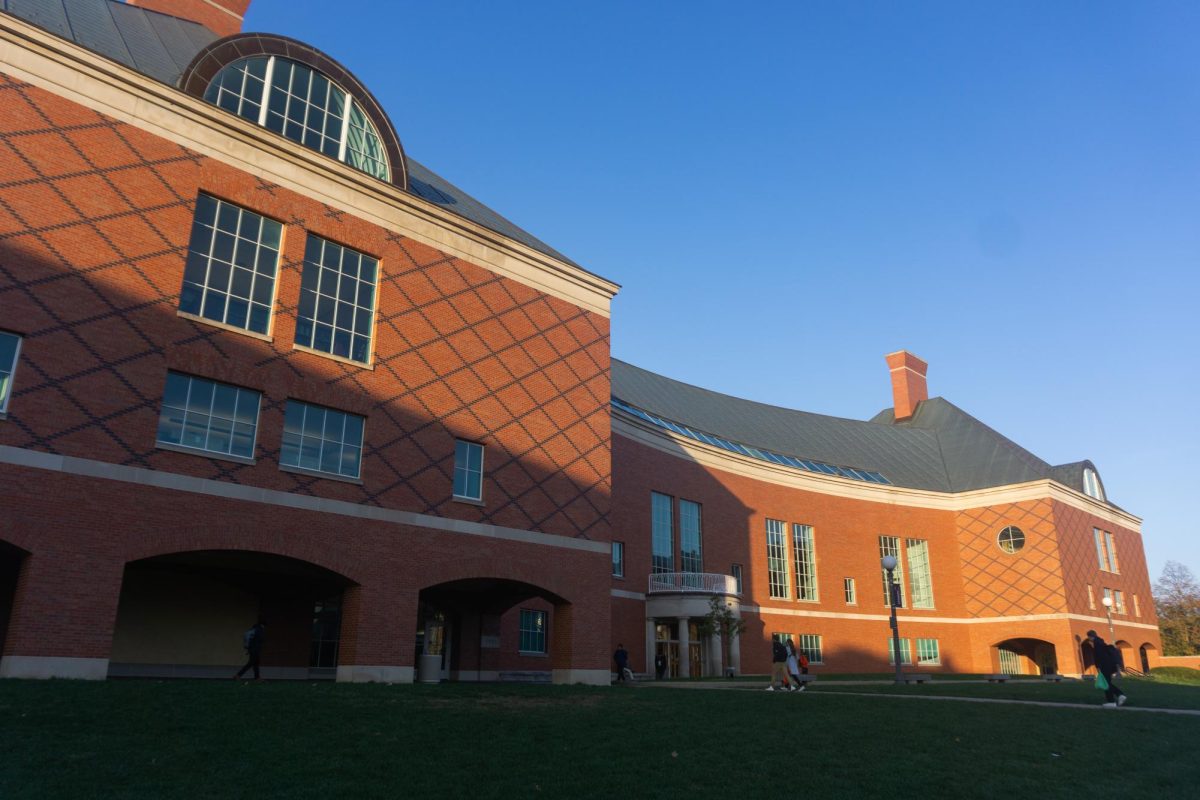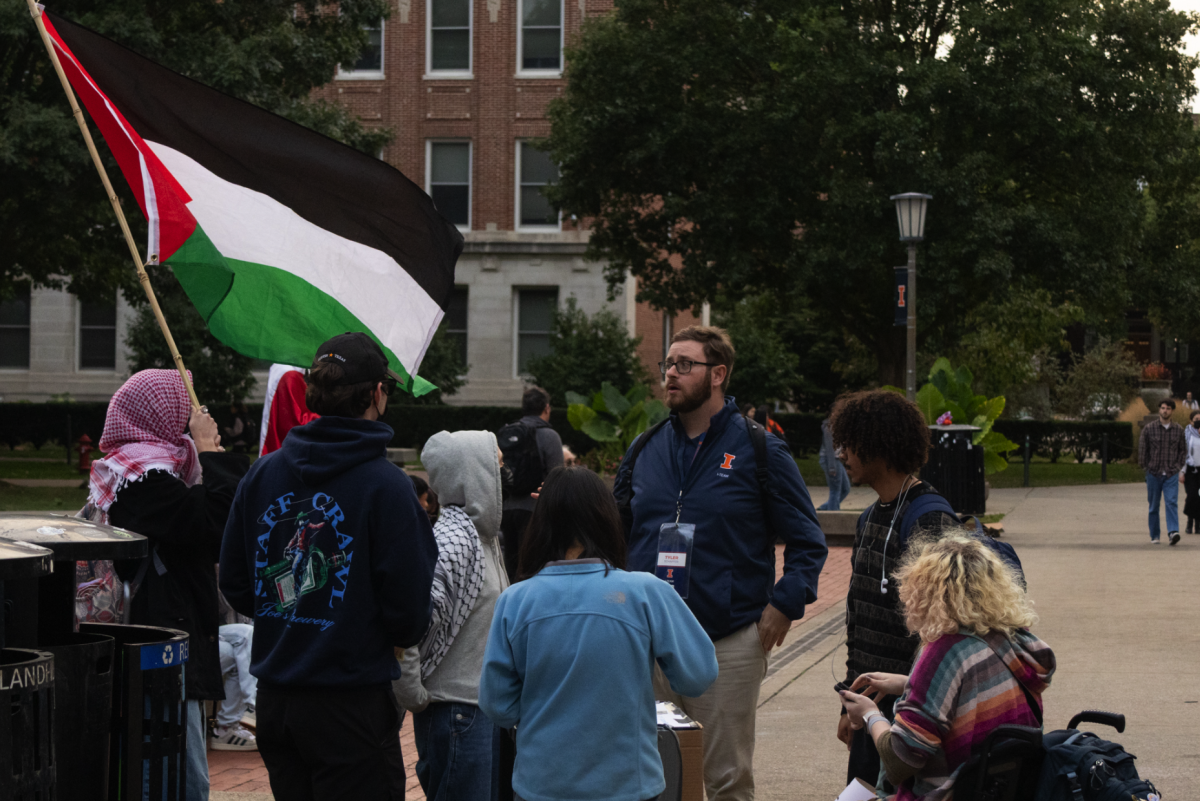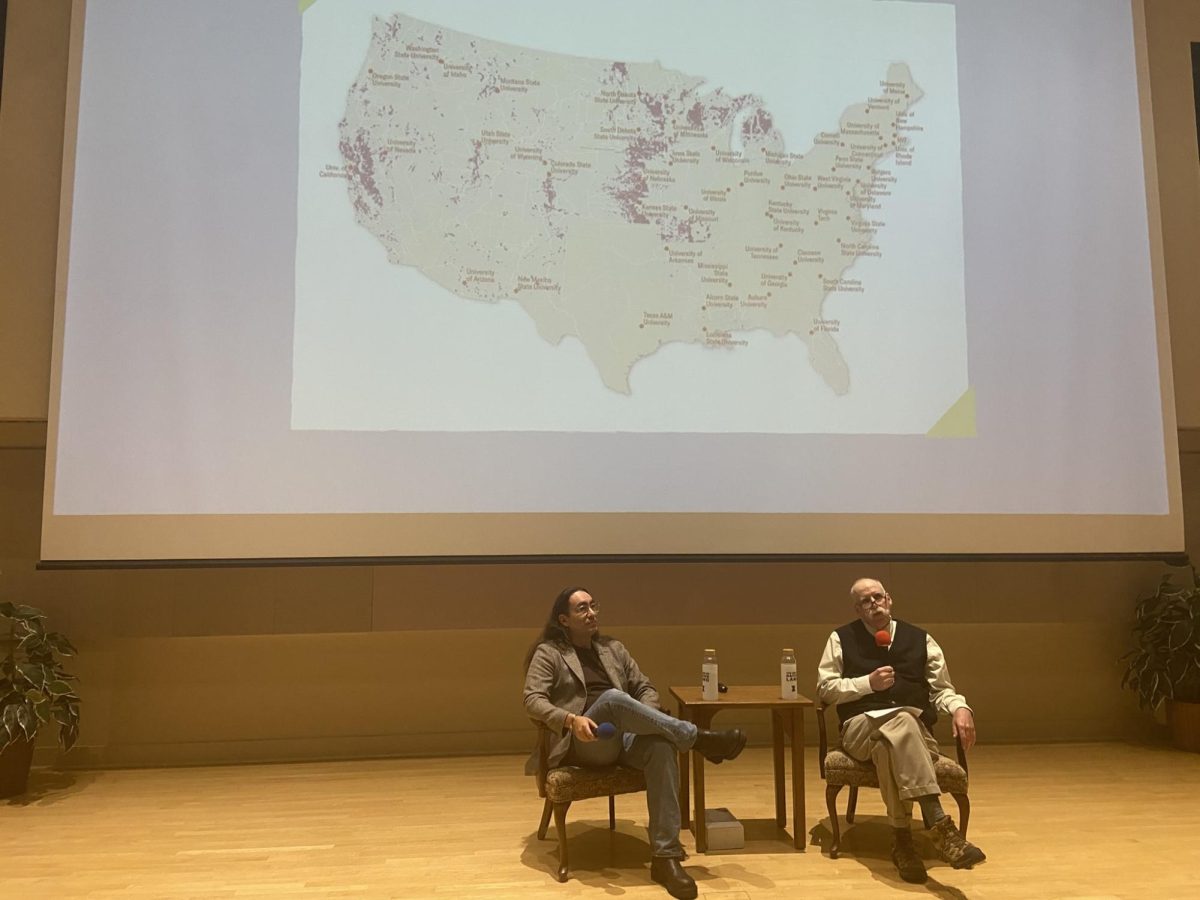On Monday, Student Affairs leadership and Bruce D. Nesbitt African American Cultural Center representatives met to discuss the budget and the spread of recent rumors that the cultural house would be defunded.
Vice Chancellor for Student Affairs Danita M. Brown Young immediately refuted the rumor that has circulated over the past two weeks on social media.
“I want to be clear … Nobody is defunding any of the cultural centers,” Young said. “Not one is being defunded. Nothing is being talked about in that manner whatsoever. This is also not the result of any executive orders that might have been happening in the last two weeks.”
The conversation took place in the Student Dining and Residential Programs Building. BNAACC’s Instagram post encouraged students to “get informed, ask questions, and share your thoughts.”
Organizers advertised the conversation to last only an hour, but it stretched to nearly two. Passionate students showcased their discontent and concern during the meeting, pressing for answers.
Get The Daily Illini in your inbox!
The panel of speakers consisted of Young, Acting Assistant Vice Chancellor for Student Success, Inclusion and Belonging Kimberly Alexander Brown, Director of BNAACC Jazmyne Kellogg, Acting Associate Vice Chancellor for Student Success, Inclusion and Belonging Domonic Cobb and Acting Associate Vice Chancellor for Auxiliary, Health & Wellbeing Jim Hintz.
Young remarked on the air of uncertainty and change not only around campus but in the United States and how she aims to support students and make them feel heard during these times.
“There seems to be a lot of information that is going around, so we thought it would be best for you all to hear directly from Student Affairs leadership,” Young said. “What we are here to do, particularly as Student Affairs team members, we are absolutely here to support you all; we are here to make sure that you have the necessary experiences because we want you to be successful.”
The panel also discussed upcoming changes, including a major change to The Circuit: Pre-Orientation Program, an early move-in program dedicated to welcoming Black freshmen to campus.
According to Hintz, this program operates on a grant received after COVID-19. The grant allowed them to expand the program and offerings of the cultural center, as well as to be able to pay student leaders.
But the grant money has run out, forcing cuts — including a “pause” to the Circuit Program.
“I can assure you that we are looking at additional opportunities to find funding so that we can bring that back,” Hintz said, though he was unable to share specific details.
Cobb also talked about the lack of funding, mentioning that inflation and cost escalation have greatly impacted their budget. This has led to changes such as pulling back their hours on weekends, as well as a lack of food and refreshments in the center.
Before opening the Q&A portion of the discussion, Cobb ensured attendees that everything wasn’t “doom and gloom.” Cobb mentioned an upcoming increase to the Cultural Programming Fee, which will allow more funding to go directly to programming.
After opening the discussion to commentary, several students grouped for what would be over two hours of confronting the panelists.
Most students expressed their discontent with the lack of transparency provided by the board. They pointed out the lack of information, preparation and commitment to Black students.
Although organizers labeled the event a “budget conversation,” the panelists did not present any budget information or concrete numbers. It sparked controversy, as that information is currently inaccessible to students.
“We again do not have access to this information,” said Khalia Mullin, senior in LAS. “None of the money, budget things, any of the data … We need that to be accessible to us as students as well if we are going to have an input in all of this.”
Mullin stated that the University was funding the war in Gaza, a sentiment that drew applause from the audience. Several students repeated similar thoughts throughout the evening.
“I also know that you guys … are putting a lot of your funding into Israeli weapons manufacturing companies,” Mullin said. “A lot of that money could actually be reinvested into your Black community here.”
Kennedy McClinton, senior in LAS, mentioned Project 500. The Project was the University’s effort to “offer equal educational opportunities for all of the residents of Illinois.” Project 500 led to the arrest of 240 Black students.
“There are 500 Black students,” McClinton said, referencing the 594 Black freshmen who now attend the University. “I have seen these Black people since I was a freshman. Every year, it’s less and less of us … This is the face of U of I, and you all are trying to erase us from this.”
Over an hour and a half after the originally scheduled time, the meeting came to a close. The organizers promised the Black students in attendance increased transparency, information and effort in future meetings.
“The frustration that I feel from some of you is powerful,” Cobb said. “I get it, I remember it, I’ve experienced it for a while, but this is what I want to tell you … We will continue to talk about the things that we have the ability to control, the things that we have the ability to affect change, we will work with you to try and point you in the right directions, but we’re a complex institution, and I wish I could offer you a singular kind of answer.”



